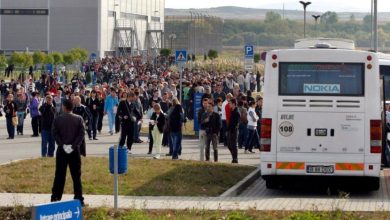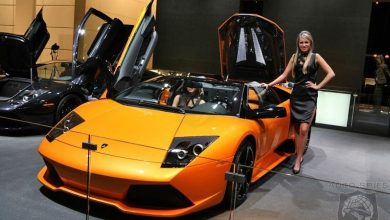EU will cover businessmen with a network
The European Commission presented a continental network in support of small and medium-sized businesses. It is assumed that the “one-stop agency” will help entrepreneurs receive both Euro-financing and the most relevant information for them. The initial amount of funds in the project is 700 million euros.
“To reach the European funds, I spent 9 months and 18 kilograms of paper!” – these words of a desperate Austrian businessman from a presentation film of the European Commission thwarted a flurry of applause in the hall of the European Commission. Indeed, to get through the European bureaucracy in order to get not even co-financing, but simply information – even that it does not rely on this project at all – is often beyond the power of not only our businessmen, but also the more experienced Germans, French and to the British.
Until yesterday, the European Union had two main networks where you could apply for information on receiving funds from European funds and other opportunities. However, the effectiveness of their work was such that often entrepreneurs, after several futile attempts, preferred to wave to Europe and get their own money. As Guenther Verheugen, Vice President of the European Commission for Entrepreneurship and Industry, emphasized yesterday, due to the complex procedure and many formalities, small and medium-sized businesses, which are the basis of the European economy, cannot develop.
Yesterday, the European Commission, trying to make it easier for the bureaucracy generated by it, announced the creation of a single network, the so-called one-stop agency – Enterprise Europe Network. About two thousand businessmen and representatives of the press and organizations from all over Europe were invited to her presentation.
Through a new unified network, anyone interested can relatively quickly and easily learn about all the development opportunities, new methods and technologies, professional development of employees (about various professional seminars and courses), assess the riskiness of work in another EU country and, most importantly, get direct contacts of a specific euro fund who can co-finance the project, and all the necessary information about it.
“It’s very convenient. Now you don’t have to spend a lot of time, and therefore money,” said one of its developers, President of Business Europe Ernest-Anthony Seiller, at the presentation of the network. “For example, it will become quite simple to assess the situation in the country where you you’re planning to open a branch. And you can immediately find potential partners, find out the dangerous aspects of working there and the features of local legislation.
The first portion of the funds, which will be available through the “one-stop agency” and intended for the entire EU-27, is 700 million euros. However, only 45% of them were paid from the euro-casino. The rest should be paid by participating States in the coming months. The exact amount due from Latvia is not yet known – our share will be calculated and paid over the course of this year. However, the creators of the project are sure that the investment will be justified.
In total, the continental network includes nearly 600 different agencies and organizations that act as intermediaries between businessmen and the European Union. In the framework of the new project, support will be provided specifically to small and medium-sized businesses: according to the wording of the European Commission, such companies are those whose annual turnover does not exceed 50 million euros and the number of employees does not exceed 250. This is 99% of all European enterprises.
“Small and medium-sized enterprises are actually the backbone of the European economy, and it is they who must bring it to a high level. There is a surge in unemployment in Europe. Small companies need to be encouraged to accept people. Now they prefer to manage as few employees as possible and refuse further development: it’s cheaper and more convenient for them. It is necessary that small and medium-sized businesses do not stay in their own country, but go to the markets of other states, “Gunter Verheugen emphasized at a special press conference.
Until now, Europe itself has undermined its own spine. In particular, an incredible amount of required certificates and permits is a solid barrier to the export of goods. “All states strive to maintain their identity, the characteristics of their markets and therefore are sometimes reluctant to let in foreigners. There really is a problem, and in the near future we plan to develop a number of standards that would simplify the path to the foreign market,” said Mr. Verheugen, responding to the question is whether the European Commission is ready to solve this problem.
Not so long ago, Latvian businessmen were in serious danger: the European Union started talking about the fact that our taxes are too low and their harmonization is necessary – i.e. “alignment” with higher rates of the “old EU”. However, Mr. Verheugen assured that the European Commission is not going to do anything like this: “This is a personal matter of your government. We will not intervene. The issues of tax harmonization in Europe are constantly heard. I repeat once again: nothing of the kind will happen.”
We have a global European Union network represented by the Latvian Investment and Development Agency, as well as the Latvian Technology Center. It is planned that the project will be presented to Latvian entrepreneurs already at the end of February. As Anita Abola, head of the European Agency Information Center, said, entrepreneurs will be provided with all the information on how to use a single network in practice and what opportunities are open for our businessmen.
This post is also available in:
 English
English  Русский (Russian)
Русский (Russian)





